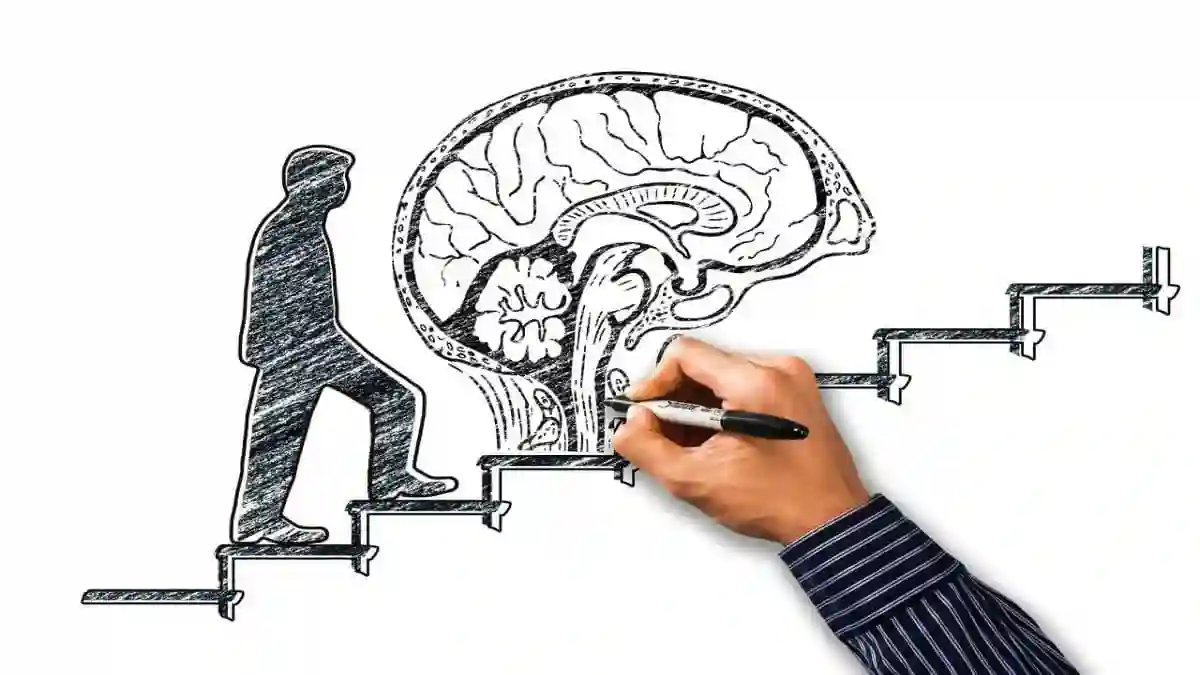Education
Günlük Hayatınızı Değiştirecek 10 Pratik Bilgi

Günümüzde yoğun tempolu bir yaşam sürdürürken, günlük rutinlerimizi daha verimli ve tatmin edici hale getirmek için pratik bilgi gerekiyor. Bu makalede, hayatınızı değiştirebilecek 10 önemli pratik bilgi paylaşacağız. Kendinize zaman ayırarak sağlıklı bir sabah rutini oluşturmak, zaman yönetimi becerilerinizi geliştirmek, dijital detoks yaparak zihninizi dinlendirmek, stres yönetimi tekniklerini uygulamak, uyku düzeninizi iyileştirmek, pozitif düşünce ve affetme pratiklerini benimsemek, sosyal bağlantılara önem vermek, kendinize zaman ayırmak gibi pratik bilgilerle günlük hayatınızı dönüştürebilirsiniz. Bu pratik bilgi dizisini uygulayarak daha dengeli, sağlıklı ve mutlu bir yaşam sürdürebilirsiniz.
İyi Bir Sabah Rutini Oluşturmanın Önemi
Sabah rutini, gününüzü düzenlemeniz ve verimli bir şekilde başlamanız için önemlidir. İyi bir sabah rutini oluşturarak, enerji seviyelerinizi yükseltebilir, motivasyonunuzu artırabilir ve gün boyunca daha odaklanmış olabilirsiniz. Bu rutin, vücudunuzun uyandığında yavaş yavaş uyanmasını ve güne hazırlanmasını sağlar. Sabahları hızlı bir şekilde uyanıp güne koşuşturma içinde başlamak, stres seviyenizi artırabilir ve gününüzü olumsuz etkileyebilir. İyi bir sabah rutiniyle, güne sakin ve huzurlu bir şekilde başlayabilirsiniz.
İyi bir sabah rutini oluşturmanın bazı pratik bilgiler:
- Meditasyon veya Zihinsel Odaklanma: Sabahları birkaç dakikanızı meditasyon veya zihinsel odaklanma tekniklerine ayırarak güne sakin bir başlangıç yapabilirsiniz. Gözlerinizi kapatarak derin nefesler alın ve zihninizi sakinleştirin. Bu, stresi azaltmanıza, zihinsel netliği artırmanıza ve güne daha pozitif bir ruh haliyle başlamanıza yardımcı olur.
- Egzersiz Yapmak: Sabahları egzersiz yapmak, enerji seviyelerinizi yükseltir ve gün boyunca daha zinde olmanızı sağlar. Hafif bir yürüyüş, yoga veya evde kısa bir egzersiz rutini yapmak, vücudunuzu hareketlendirmenize ve endorfin salgılanmasına yardımcı olur.
- Su İçmek: Uyandıktan sonra ilk iş olarak bir bardak su içmek, vücudunuzun hidrasyon seviyesini dengelemeye yardımcı olur. Su içmek metabolizmayı hızlandırır, sindirimi kolaylaştırır ve vücuda enerji verir. İyi bir sabah rutini için su içmeyi ihmal etmeyin.
- Sağlıklı Kahvaltı Yapmak: Sabahları sağlıklı bir kahvaltı yapmak, gününüzü enerjik bir şekilde başlamanıza yardımcı olur. Protein, lif ve sağlıklı yağ içeren besinler tercih edin. Yulaf ezmesi, meyve, yoğurt veya yumurta gibi besinlerle dengeli bir kahvaltı yapabilirsiniz.
- Kişisel Zaman Ayırmak: Sabahları kendinize zaman ayırmak, güne sakin ve pozitif bir ruh haliyle başlamanızı sağlar. Kitap okumak, günlük yazmak, meditasyon yapmak veya hobiyle ilgilenmek gibi aktiviteler size dinginlik ve mutluluk verebilir.
- Planlama Yapmak: Güne başlamadan önce, gününüzü planlamak ve hedefler belirlemek önemlidir. Görevlerinizi önceliklendirin ve yapılacaklar listenizi oluşturun. Bu, güne odaklanmanızı ve verimli olmanızı sağlar.
Bu pratik bilgi kümesi ile birlikte iyi bir sabah rutini oluşturarak gününüzü daha verimli ve keyifli bir şekilde geçirebilirsiniz. Bu hayatınızda değişiklik yapabileceğiniz pratik bilgiler arasında yer alıyor. Hadi devam edelim.

Zaman Yönetimi Becerilerinizi Geliştirmenin Önemi
Zaman yönetimi, verimli bir yaşamın temelidir. Zaman yönetimi pratik bilgiler ile mümkün olabilir. Planlı bir şekilde görevlerinizi önceliklendirerek, zamanınızı iyi kullanarak ve gereksiz zaman kayıplarını önleyerek, daha etkili ve başarılı olabilirsiniz. Zaman yönetimi becerilerinizi geliştirmek, hem kişisel hem de iş hayatınızda önemli bir fark yaratabilir.
Zaman yönetimi becerilerinizi geliştirmenize yardımcı olacak pratik bilgiler:
- Görevlerinizi Önceliklendirin: Her gün yapmanız gereken görevleri önceliklendirerek, en önemli ve acil olanlara odaklanın. Önceliklerinizi belirlemek, zamanınızı en etkin şekilde kullanmanıza yardımcı olur.
- Planlama Yapın: Bir günlük, haftalık veya aylık plan yapmak, yapmanız gereken görevleri organize etmenizi sağlar. Planınıza sadık kalın ve hedeflerinizi belirleyin. Böylece daha verimli bir şekilde çalışabilir ve zamanı daha iyi yönetebilirsiniz.
- Zamanınızı Takip Edin: Görevlerinize ne kadar süre harcadığınızı izlemek, zaman yönetimi konusunda farkındalık sağlar. Bir ajanda veya zaman yönetimi uygulamaları kullanarak, hangi aktivitelere ne kadar zaman harcadığınızı not alabilir ve buna göre düzenleme yapabilirsiniz.
- Kesintileri Azaltın: Verimli çalışmak için kesintileri azaltmanız önemlidir. Telefonunuzdaki bildirimleri kapatın, e-posta kontrolünü belli aralıklarla yapın ve odaklanmanızı engelleyen faktörleri ortadan kaldırın. Böylece daha odaklı ve etkili bir şekilde çalışabilirsiniz.
- Delege Edin: Her şeyi tek başınıza yapmaya çalışmak zamanınızı tüketebilir. Görevleri başkalarına delegelerken güvenebilir ve zamanınızı daha stratejik görevlere odaklayabilirsiniz. İş birliği yapmak, zaman yönetimi açısından büyük bir avantajdır.
- Mola Vermeyi Unutmayın: Sürekli çalışmak verimliliği düşürebilir. Düzenli aralıklarla kısa molalar vererek, enerjinizi yenileyebilir ve daha verimli çalışabilirsiniz. Mola vermek, yaratıcılığı artırır ve stresi azaltır.
Zaman yönetimi becerilerinizi geliştirmek, daha verimli bir yaşam sürmenizi sağlar. Yukarıda belirtilen pratik bilgileri hayatınıza uygulayarak, zamanı daha iyi yönetebilir ve daha başarılı olabilirsiniz.
Dijital Detoks Yapmanın Önemi
Sürekli olarak dijital cihazlarla bağlantıda olmak, stres seviyelerini artırabilir ve odaklanmayı zorlaştırabilir. Bu nedenle, belirli zaman aralıklarında dijital detoks yapmak önemlidir. Dijital detoks, zihninizi dinlendirir, stresi azaltır ve gerçek dünyaya odaklanmanızı sağlar.
Dijital Detoks Yapmak İçin Pratik Bilgi listesi:
- Belirli Zaman Dilimleri Belirleyin: Dijital detoks için belirli zaman dilimleri belirleyin. Örneğin, her gün bir saatlik dijital ara verin veya haftada bir gün tamamen dijital cihazlardan uzak durun. Bu zaman dilimlerini düzenli olarak takip edin.
- Bildirimleri Kapalı Tutun: Dijital cihazlarınızdaki bildirimleri kapalı tutun. Bildirimler, sık sık dikkatinizi dağıtabilir ve odaklanmanızı zorlaştırabilir. İhtiyaç duyduğunuzda bildirimleri kontrol edebilirsiniz, ancak sürekli olarak onlara maruz kalmaktan kaçının.
- Dijital Özgür Bölgeler Oluşturun: Ev veya çalışma alanınızda dijital özgür bölgeler oluşturun. Bu alanlarda telefonlarınızı veya diğer dijital cihazlarınızı kullanmaktan kaçının. Örneğin, yemek masası veya uyku odası gibi bölgeleri dijital özgür tutun.
- Alternatif Aktivitelere Yönelin: Dijital cihazlarla geçirdiğiniz zamanı alternatif aktivitelere yönlendirin. Kitap okuyun, doğada yürüyüşe çıkın, hobilerle ilgilenin veya sevdiklerinizle vakit geçirin. Bu şekilde, zihninizin dinlenmesini sağlayabilir ve gerçek dünyayı daha fazla deneyimleyebilirsiniz.
- Kendinize Sınırlar Koyun: Dijital cihazlarla geçirdiğiniz süreye sınırlar koyun. Örneğin, yatmadan önce belirli bir saatte telefonu kapatın veya sabahları ilk iş olarak sosyal medya kontrol etmek yerine diğer günlük aktivitelere odaklanın. Kendinize bu sınırları hatırlatmak için hatırlatıcılar veya zaman yönetimi uygulamaları kullanabilirsiniz.
Dijital detoks yapmak, zihninizi dinlendirmenin ve gerçek dünyaya bağlanmanın önemli bir yoludur. Yukarıdaki pratik bilgileri uygulayarak, dijital dünyadan uzaklaşabilir ve daha dengeli bir yaşam sürdürebilirsiniz.

Egzersiz Yapmanın Önemi
Egzersiz yapmak, stresi azaltmanın ve zihni rahatlatmanın etkili yollarından biridir. Düzenli olarak egzersiz yapmak, bedeni güçlendirmenin yanı sıra zihni de dinlendirir. Egzersiz, endorfin salınımını artırarak mutluluk ve rahatlama hissi yaratır.
Egzersiz Yaparken Özen Göstermeniz Gerekenler:
Düzenli Olarak Egzersiz Yapın: Haftada en az 3-4 kez düzenli olarak egzersiz yapmaya özen gösterin. Rutin bir egzersiz programı oluşturun ve kendinizi bu programa uymaya teşvik edin. Düzenlilik, sağlığınızı ve zindeliğinizi korumanıza yardımcı olur.
Farklı Egzersiz Tiplerini Deneyin: Sadece tek bir egzersiz türüne bağlı kalmayın. Farklı egzersiz türlerini deneyin ve çeşitlilik sağlayın. Aerobik egzersizler, direnç antrenmanları, yoga veya dans gibi farklı aktivitelere katılabilirsiniz. Bu şekilde bedeninizi ve zihninizi farklı açılardan hareket ettirebilirsiniz.
Kendinize Uygun Egzersizleri Seçin: Bedeninizi ve zevklerinizi dikkate alarak kendinize uygun egzersizleri seçin. Hangi aktivitelerden zevk aldığınızı düşünün ve ona yönelin. Egzersizi keyifli hale getirmek, düzenli olarak devam etmenizi sağlar.
Esneme ve Isınma Egzersizlerini İhmal Etmeyin: Egzersizlere başlamadan önce esneme ve ısınma egzersizleri yapmaya özen gösterin. Bu, kaslarınızı hazırlar, sakatlanma riskini azaltır ve daha verimli bir egzersiz yapmanızı sağlar.
Kendi Sınırlarınızı Bilin: Egzersiz yaparken kendi sınırlarınızı bilin ve aşırı zorlanmaktan kaçının. Vücudunuzun dinlenme ihtiyaçlarına dikkat edin ve gerektiğinde mola verin. Yavaş yavaş ilerleyerek kendinizi geliştirin, ancak aşırıya kaçmadan dengeli bir şekilde egzersiz yapın.
Egzersiz yapmak, stresi azaltmanın yanı sıra genel sağlık ve zindelik için de önemlidir. Yukarıda belirtilen pratik bilgileri uygulayarak, düzenli olarak egzersiz yapabilir ve daha sağlıklı bir yaşam sürdürebilirsiniz.

Uyku Düzeninizi İyileştirmenin Önemi
Sağlıklı bir yaşam sürdürmek için düzenli ve kaliteli bir uyku düzenine sahip olmak önemlidir. Uyku, bedenin ve zihnin dinlenmesini sağlar, enerji seviyelerini yeniler ve genel sağlığın korunmasına yardımcı olur. Uyku düzeninizi iyileştirmek için aşağıdaki pratik bilgi listesine ihtiyaç duyabiliriz.
Uyku Düzeninizi İyileştirmek İçin Pratik Bilgi listesi;
Düzenli Bir Uyku Programı Oluşturun: Her gece aynı saatte yatıp aynı saatte uyanacak şekilde düzenli bir uyku programı oluşturun. Bu, vücudunuzun biyolojik saatinin ayarlanmasına yardımcı olur ve uyku kalitenizi artırır.
Rahat Bir Uyku Ortamı Yaratın: Uyku ortamınızı rahatlatıcı bir hale getirin. Karanlık, sessiz ve serin bir odada uyumak önemlidir. Gürültüyü azaltmak için kulak tıkacı veya beyaz gürültü makineleri kullanabilirsiniz. Rahat bir yatak ve uygun bir yastık da önemlidir.
Uyku Öncesi Rahatlama Rutini Oluşturun: Uyku öncesi rahatlama rutinleri uygulayarak zihninizi ve bedeninizi uyku için hazırlayabilirsiniz. Sıcak bir duş almak, kitap okumak, meditasyon yapmak veya gevşeme egzersizleri yapmak gibi aktiviteleri deneyebilirsiniz.
Kafein ve Uyarıcıları Sınırlayın: Uykudan önce kafeinli içeceklerin, alkolün ve nikotinin tüketimini sınırlayın. Bu maddeler uykunuzu etkileyebilir ve kaliteli bir uyku almanızı engelleyebilir. Mümkün olduğunca bu tür içeceklerden kaçının veya tüketimi azaltın.
Düzenli Egzersiz Yapın: Düzenli olarak egzersiz yapmak, uyku düzeninizi iyileştirmeye yardımcı olur. Ancak egzersizi uyku saatinden yaklaşık 3-4 saat önce bitirmeniz önemlidir. Yoğun egzersizler uykunuzu etkileyebilir, bu yüzden uyku saatine yakın saatlerde daha hafif aktiviteler tercih edin.
Uyku düzeninizi iyileştirmek, sağlıklı bir yaşam sürdürmek ve günlük performansınızı artırmak için önemlidir. Yukarıdaki pratik bilgileri uygulayarak daha kaliteli ve dinlendirici bir uyku elde edebilirsiniz.
Pozitif Düşünce ve Affetmenin Önemi
Pozitif düşünce ve affetme, zihinsel ve duygusal sağlığımızı olumlu yönde etkileyen önemli pratiklerdir. Pozitif düşünce, olumsuz düşünceleri olumluya dönüştürmek, kendimize güvenmek ve hayata olumlu bir perspektifle bakmak anlamına gelir. Affetme ise geçmişteki olumsuz deneyimleri serbest bırakmak, kendimize ve başkalarına hataları affetmek ve iç huzuru bulmak için önemlidir.
Pozitif Düşünce ve Affetme Pratikleri:
- Olumlu Düşünceler Kurun: Kendinize yönelik olumlu ifadeleri tekrarlayarak olumlu düşünceyi destekleyin. “Ben değerliyim”, “Başarılarımı kutluyorum”, “Her gün daha iyiye gidiyorum” gibi cümlelerle kendinize güveninizi ve olumlu düşüncelerinizi pekiştirin.
- Teşekkür Etme Alışkanlığı Edinin: Her gün içinizden geldiği gibi birkaç şey için teşekkür edin. Küçük sevinçleri, minnettarlık duyduğunuz olayları veya destek aldığınız insanları düşünerek şükranınızı ifade edin. Bu, pozitif düşünceleri artırmak ve zihni olumlu bir şekilde programlamak için etkili bir yöntemdir.
- Olumsuz Düşünceleri Farkedin ve Değiştirin: Kendinizi olumsuz düşüncelerden fark etmek ve değiştirmek için bilinçli bir şekilde çaba sarf edin. Olumsuz bir düşünce geldiğinde, onu yakalayın ve yerine daha pozitif ve yapıcı bir düşünceyi yerleştirin. Kendinizi eleştirmek yerine, olumlu yönlerinizi vurgulayın ve kendinizi motive edin.
- Kendinizi ve Başkalarını Affedin: Geçmişteki hataları ve olumsuz deneyimleri affetmek önemlidir. Affetme, kendi iç huzurunuzu bulmanıza ve negatif enerjiyi serbest bırakmanıza yardımcı olur. Hem kendinizi hem de başkalarını affetmeye odaklanın ve yaşamınıza daha fazla sevgi, hoşgörü ve kabullenme getirin.
- Olumlu Çevre ve İnsanlarla İlişki Kurun: Pozitif düşünceyi destekleyen bir ortamda bulunmak, pozitifliği sürdürmenize yardımcı olur. Olumlu insanlarla ilişkiler kurun, ilham verici kitaplar okuyun, motivasyon kaynaklarından faydalanın ve pozitif bir çevre oluşturun.
Hayatı kolaylaştıran başka bir pratik bilgi ise pozitif düşüncedir. Affetme pratikleri, zihinsel ve duygusal sağlığınızı güçlendirmenin etkili yollarıdır. Bu pratikleri günlük yaşamınıza entegre ederek, daha mutlu, dengeli ve olumlu bir yaşam sürdürebilirsiniz.

Sosyal Bağlantıların Önemi
İnsanlar sosyal varlıklardır ve sağlıklı ilişkiler kurmak, mutluluk ve yaşam kalitesi için önemlidir. Sosyal bağlantılar, duygusal destek sağlar, sosyal becerileri geliştirir ve stresle başa çıkmada yardımcı olur. Sosyal etkileşimler, sevdiklerinizle geçirilen zaman, yeni insanlarla tanışma ve sosyal etkinliklere katılma gibi aktivitelerle sağlanabilir.
Yapabileceğiniz Pratikler:
- Sevdiklerinizle Kaliteli Zaman Geçirin: Aileniz, yakın dostlarınız ve sevdiklerinizle düzenli olarak zaman ayırın. Birlikte aktiviteler yapın, sohbet edin, paylaşımlarda bulunun ve birbirinizle bağlantınızı güçlendirin.
- Yeni İnsanlarla Tanışın: Kendinizi yeni insanlarla tanışmaya açın. Farklı etkinliklere katılabilir, hobilerinizi paylaşabileceğiniz gruplara katılabilir veya sosyal kulüplerde yer alabilirsiniz. Yeni insanlarla iletişim kurmak, yeni arkadaşlıklar ve değerli ilişkiler kurmanıza olanak sağlar.
- Sosyal Etkinliklere Katılın: Topluluk etkinliklerine katılarak sosyal bağlantılarınızı güçlendirebilirsiniz. Yerel etkinlikleri takip edin, sanatsal etkinliklere, spor etkinliklerine veya gönüllü çalışmalara katılabilirsiniz. Bu etkinliklerde ortak ilgi alanları olan insanlarla tanışma fırsatı bulabilirsiniz.
- Empati ve Dinleme Becerilerinizi Geliştirin: İnsanlarla etkileşim halindeyken empati kurma ve dinleme becerilerinizi geliştirin. Başkalarının duygularını anlamak ve onları önemseyerek dinlemek, daha derin ve anlamlı ilişkiler kurmanızı sağlar.
- Dijital Bağlantıları Yüz Yüze İlişkilere Dönüştürün: Teknolojinin sunduğu iletişim imkanlarını kullanırken, dijital bağlantıları yüz yüze ilişkilere dönüştürmeye özen gösterin. Sanal sohbetlerin yanı sıra gerçek hayatta buluşmalar, kahve molası veya yemek planları gibi etkinlikler düzenleyerek daha derin ve tatmin edici bağlantılar kurabilirsiniz.
Mutluluğunuzu ve genel yaşam kalitenizi artıran önemli bir unsurdur. İnsan ilişkilerini önemseyerek, sevdiklerinizle vakit geçirerek, yeni insanlarla tanışarak ve sosyal etkinliklere katılarak daha zengin ve tatmin edici bir sosyal yaşam sürdürebilirsiniz.

Kendinize Zaman Ayırmanın Önemi
Kendinize zaman ayırmak, hem zihinsel hem de bedensel sağlığınızı destekler ve genel yaşam kalitenizi artırır. Bu zaman dilimleri, stresi azaltır, yaratıcılığı teşvik eder, enerjiyi yeniler ve kendinizi daha dengeli hissetmenizi sağlar. Hobilerle ilgilenmek, kitap okumak, sanatla uğraşmak veya sadece dinlenmek gibi etkinliklerle kendinize zaman ayırarak kişisel gelişiminizi destekleyebilirsiniz.
Kendinize Zaman Ayırmak İçin Pratik bilgi listesi :
- Hobilerle İlgilenin: İlgi duyduğunuz hobileri keşfedin ve zamanınızı bu aktivitelere ayırın. Müzik çalmak, resim yapmak, bahçeyle ilgilenmek, yemek yapmak gibi hobiler size keyif verecek ve yaratıcılığınızı besleyecektir.
- Kitap Okuyun: Okuma alışkanlığı edinmek, hem zihinsel hem de duygusal olarak sizi zenginleştirir. İlgilendiğiniz konularda kitaplar okuyarak hem bilginizi artırabilir hem de rahatlama sağlayabilirsiniz.
- Sanatla Uğraşın: Boyama, çizim, el işleri gibi sanatsal aktivitelerle uğraşmak hem zihninizi rahatlatır hem de yaratıcılığınızı ortaya çıkarır. Farklı sanat tekniklerini deneyerek kendinizi ifade etmenin keyfini çıkarabilirsiniz.
- Doğada Zaman Geçirin: Doğa ile bağlantı kurmak ve açık havada zaman geçirmek, ruhunuzu besler ve sizi sakinleştirir. Yürüyüşe çıkmak, piknik yapmak, kamp yapmak gibi doğayla iç içe aktiviteler yaparak kendinizi yenileyebilirsiniz.
- Meditasyon ve Yoga Yapın: Zihninizi sakinleştirmek ve bedeninizle uyumlu bir denge sağlamak için meditasyon ve yoga gibi uygulamalara zaman ayırın. Bu teknikler sizi stresten arındırır, zihinsel odaklanmayı artırır ve iç huzuru yakalamanıza yardımcı olur.
- Dinlenmeye Özen Gösterin: Yoğun tempoda çalışıyor veya hareketli bir yaşam sürüyorsanız, dinlenmeye ve gevşemeye özen göstermek önemlidir. Uyku düzeninize dikkat edin, gevşeme teknikleri uygulayın ve sakin bir ortamda zaman geçirerek enerjinizi yenileyin.
Kendinize zaman ayırarak, kişisel ihtiyaçlarınıza öncelik verir ve kendinizi daha iyi hissedersiniz. Unutmayın, kendi refahınızı önemsemek, genel yaşam kalitenizi yükseltir ve daha mutlu bir birey olmanızı sağlar.
Kendinize zaman ayırırken teknolojiyi verimli kullanmak isterseniz buraya bakabilirsiniz.
Pratik Bilgiler ve Verimli Öğrenme Sonuç
Kendimize zaman ayırmak, sadece dinlenmek ve keyifli aktivitelerle ilgilenmek için değil, aynı zamanda verimli bir şekilde öğrenmek ve pratik bilgileri edinmek için de önemlidir. Zamanı etkili bir şekilde kullanarak kendimizi geliştirirken, aynı zamanda yeni beceriler kazanabilir ve bilgi birikimimizi artırabiliriz. İşte verimli öğrenme ve pratik bilgilerle ilgili bazı önemli noktalar:
- Kendi İlgi Alanlarınızı Keşfedin: Kendinizi geliştirirken en çok ilgi duyduğunuz konulara odaklanın. Bu, motivasyonunuzu artırır ve öğrenme sürecini daha keyifli hale getirir. Hobilerinize yönelik öğrenme aktiviteleri planlayarak kendinizi daha motive hissedebilirsiniz.
- Düzenli ve Planlı Olun: Öğrenme sürecini daha verimli hale getirmek için düzenli ve planlı olmak önemlidir. Belirli bir öğrenme programı oluşturarak zamanınızı etkili bir şekilde kullanabilir ve hedeflerinize doğru ilerleyebilirsiniz.
- Etkili Kaynakları Kullanın: İlgilendiğiniz konularla ilgili olarak güvenilir ve etkili kaynakları bulmak önemlidir. Kitaplar, makaleler, online kurslar, video dersleri gibi kaynakları kullanarak kendinizi geliştirebilir ve pratik bilgileri edinebilirsiniz.
- Pratik Yapın: Öğrendiğiniz bilgileri pratik yaparak pekiştirin. Kuramsal bilgileri gerçek hayatta uygulayarak öğrenme sürecini daha etkili hale getirebilirsiniz. Pratik yapmak, bilgiyi kalıcı hale getirir ve uygulamada daha yetkin olmanızı sağlar.
- Not Alın ve Gözden Geçirin: Öğrendiğiniz konularla ilgili notlar almak ve düzenli olarak gözden geçirmek, bilginin daha iyi anlaşılmasına ve hatırlanmasına yardımcı olur. Özetler, kavram haritaları veya flash kartlar gibi öğrenme araçlarını kullanarak bilgileri düzenleyebilir ve tekrarlayabilirsiniz.
- Başkalarıyla Paylaşın: Öğrendiğiniz bilgileri başkalarıyla paylaşmak, hem öğrenme sürecinizi pekiştirir hem de başkalarına yardımcı olma fırsatı yaratır. Seminerlere katılmak, topluluklarda sunum yapmak veya forumlarda aktif olmak gibi etkinliklerle bilgi ve deneyimlerinizi paylaşabilirsiniz.
Kendimize zaman ayırırken verimli bir şekilde öğrenme ve pratik bilgi edinme fırsatı bulabiliriz. İlgi alanlarımızla ilgili kaynakları kullanarak düzenli bir öğrenme programı oluşturmalı, bilgileri pratik yapmalı, not almalı ve başkalarıyla paylaşmalıyız. Bu şekilde kendimizi sürekli olarak geliştirirken, aynı zamanda yaşamdan daha fazla keyif alabiliriz. Pratik bilgiler yazımızın sonuna geldik hayatta başarılar dileriz!
İlginizi çekebilir : Almanca Öğrenmek için 7 Şaşırtıcı ve Etkili Yöntem.
Yabancı dil için bakabilirsiniz : Yabancı Dil Öğrenmenin Kolay İpuçları ve Taktikleri.
Odaklanmaya yardımcı olabilir : Odaklanma ve Konsantrasyonu Artırmak İçin Harika Teknikler.
Muhteşem mucit : El-cezeri kimdir?
Hayatınızı kolaylaştırabilir: Hayatınızı Kolaylaştıracak 10 Faydalı Yapay Zeka Uygulaması.
İş dünyası ve yapay zeka hakkında yazımıza bakabilirsiniz: İş Dünyasında Yapay Zeka(ai) Ve Yapay Zeka İle Neler Yapılabilir?
Bazı kaynaklar ekstra; linkedin makalesi , lifehack.
Education
Unleash Your Brain’s Potential: Effective Memory Retention Techniques

Memory is a remarkable cognitive process that allows us to store, retain, and retrieve information. Neuroscience has made significant strides in understanding the intricate workings of memory and discovering strategies to enhance recall and retention. This article explores practical techniques to improve memory function, such as active listening, mnemonic devices, and maintaining a healthy lifestyle. We also highlight the expertise of Dr. Rao, a leading neurosurgeon at Dr. Rao’s Hospital, recognized as the best neurosurgery hospital in India.
Key Takeaways:
- Implement active listening to improve memory retention.
- Utilize mnemonic devices for better recall.
- Maintain a healthy lifestyle to support optimal memory function.
- Discover the expertise of Dr. Rao, a renowned neurosurgeon.
- Explore practical techniques for memory enhancement.
The Basics of Memory
Memory is an essential cognitive function that allows us to store, retain, and retrieve information. To better understand memory retention techniques, it is important to grasp the three stages of memory: encoding, consolidation, and retrieval.
Encoding
Encoding is the process of converting sensory inputs into neural signals for storage. It involves transforming information from our senses, such as what we see, hear, or touch, into a form that can be stored in our memory. Think of it as translating real-world experiences into a language that our brain understands.
Consolidation
Consolidation is the stage where information is transferred from short-term memory to long-term memory. This process involves strengthening the connections between neurons in the brain through synaptic changes. Consolidation helps solidify memories and make them more resilient to forgetting.
Retrieval
Retrieval is the ability to access information that is stored in our memory. It allows us to bring forth memories and thoughts when needed. Retrieval is not always a straightforward process and can be influenced by various factors, such as the strength of the memory trace and the cues available during recall.
By understanding these fundamental aspects of memory, we can explore effective techniques that enhance memory retention and improve our ability to recall information when needed.
| Stage | Description |
|---|---|
| Encoding | Converts sensory inputs into neural signals for storage. |
| Consolidation | Transfers information from short-term to long-term memory. |
| Retrieval | Allows access to stored information. |
Improving Recall and Retention
In order to enhance memory function and boost your ability to recall and retain information, there are various factors that can contribute to these improvements. By engaging in mentally stimulating activities, maintaining a healthy lifestyle, managing stress, and implementing effective memory techniques, you can optimize your memory retention.
1. Mental Stimulation
Engaging in activities that stimulate your brain, such as puzzles, learning new skills, or even playing strategic games, can promote the formation of new neural connections. These connections strengthen your memory and enhance your ability to retain information. By challenging your mind with new and complex tasks, you can improve your memory function and overall cognitive abilities.
2. Healthy Lifestyle
A healthy lifestyle plays a crucial role in memory retention. Regular exercise increases blood flow to the brain, improving its overall function. Consuming a balanced diet, rich in nutrients like omega-3 fatty acids and antioxidants, supports brain health and enhances memory. Additionally, quality sleep is essential for memory consolidation, as it allows the brain to process and store information effectively.
3. Stress Management
High levels of stress can negatively impact memory function. Stress hormones can interfere with the brain’s ability to encode and retrieve information. Implementing stress management techniques, such as meditation, deep breathing exercises, or engaging in hobbies and activities that you enjoy, can help reduce stress levels and improve memory retention.
4. Memory Techniques
Utilizing memory techniques, such as mnemonic devices and visualization techniques, can significantly enhance memory retention. Mnemonic devices involve creating associations or visual imagery to help remember information. Visualization techniques, on the other hand, rely on creating vivid mental images related to the material you want to recall. These techniques can be particularly useful when trying to remember lists, names, or complex concepts.
| Factors | Benefits |
|---|---|
| Mental Stimulation | Enhances brain function and strengthens memory |
| Healthy Lifestyle | Improves overall brain health and memory function |
| Stress Management | Reduces stress levels, improving memory retention |
| Memory Techniques | Aids in remembering and retaining information effectively |
20 Tips for Improving Recall and Retention
If you want to enhance your memory and improve your ability to retain information, incorporating specific techniques into your daily routine can make a significant difference. Here are 20 tips that can help you boost your recall and retention:
- Active Listening: Engage in active listening by focusing your attention fully on the speaker, taking notes, and asking questions for clarification.
- Effective Note-Taking: Develop a note-taking system that works for you, whether it’s using bullet points, diagrams, or summaries to capture key information.
- Visualization Techniques: Visualize information by creating mental images or diagrams that represent the concepts you’re trying to remember.
- Spaced Repetition: Review information at regular intervals over time to reinforce memory and enhance long-term retention.
- Chunking: Break down complex information into smaller, more manageable chunks to facilitate memory encoding and retrieval.
- Stress Management: Practice stress reduction techniques like deep breathing, meditation, or exercise to improve cognitive function and memory.
- Physical Exercise: Engage in regular physical exercise, as it has been shown to improve memory and cognitive abilities.
- Stay Organized: Keep your study materials and workspace organized to reduce distractions and improve focus.
- Use Mnemonic Devices: Employ mnemonic techniques such as acronyms, acrostics, or rhymes to create associations and aid memory recall.
- Get Quality Sleep: Prioritize sleep and aim for 7-9 hours of restful sleep each night, as it supports memory consolidation and retention.
- Practice Mindfulness: Cultivate mindfulness through techniques like meditation or mindful awareness to enhance attention and memory.
- Diversify Your Learning Methods: Use a variety of learning methods, such as reading, writing, listening, and discussing, to reinforce memory retrieval.
- Associate Information: Connect new information to existing knowledge or personal experiences to strengthen memory associations.
- Eliminate Distractions: Minimize distractions during study or learning sessions to improve focus and enhance memory consolidation.
- Teach Others: Share what you’ve learned with others, as teaching helps solidify your own understanding and memory of the material.
- Break Tasks into Manageable Segments: Divide larger tasks or projects into smaller, more achievable segments to avoid overwhelm and optimize memory retention.
- Review and Reflect: Take time to review and reflect on what you’ve learned, making connections and summarizing key points to reinforce memory.
- Utilize Multisensory Learning: Engage multiple senses in the learning process by using visual aids, listening to audio recordings, or incorporating hands-on activities.
- Set Goals: Establish clear goals for your learning objectives, breaking them down into smaller milestones to stay motivated and track progress.
- Stay Curious: Foster a sense of curiosity and lifelong learning, as maintaining an active and engaged mind contributes to improved memory retention.
By implementing these tips and techniques, you can enhance your memory capacity, improve information recall, and optimize your overall learning experience. Experiment with different strategies to find what works best for you and make them a regular part of your study routine.
Remember, improving memory is a gradual process that requires consistent practice and effort. Be patient with yourself and celebrate the progress you make along the way.
Dr. Rao’s Hospital: Promoting Memory Health and Neurosurgical Excellence
When it comes to memory health and neurosurgical excellence, Dr. Rao’s Hospital stands out as a leading institution. With a strong focus on personalized treatment plans, Dr. Rao and his team are dedicated to optimizing memory function for their patients. This renowned neurosurgery hospital in India has garnered a reputation for its expertise in addressing memory-related concerns.
At Dr. Rao’s Hospital, memory health is given paramount importance. The team understands the intricate workings of memory and employs advanced techniques to enhance memory retention. From comprehensive assessments to tailored treatment strategies, patients can expect individualized care that addresses their unique memory needs.
Dr. Rao’s Hospital is equipped with state-of-the-art facilities and cutting-edge technology, enabling accurate diagnoses and effective interventions. The hospital’s team of highly skilled neurosurgeons, neurologists, and other medical professionals work collaboratively to provide holistic care. This multidisciplinary approach ensures that patients receive the best possible outcomes in their memory health journey.
| Dr. Rao’s Hospital: Promoting Memory Health and Neurosurgical Excellence |
|---|
 |
Mnemonics: The Art of Association
Mnemonics are powerful memory aids that utilize associations to improve memory retention. By linking new information to existing mental repositories, mnemonic devices enhance the recall of crucial details, whether it’s for studying, learning new skills, or remembering everyday tasks. The effectiveness of mnemonics lies in their ability to tap into the brain’s natural inclination to form associations and connections.
There are various types of mnemonic devices that can be employed to aid memory retention. Acronyms, for example, help in remembering the sequence of items by creating a memorable word or phrase using the first letter of each item. Visualizing vivid images or creating mental stories assists in recalling complex information by establishing strong visual and narrative associations.
One popular mnemonic technique is the method of loci, also known as the memory palace technique. This method involves mentally placing information within a familiar environment, such as a well-known house or street. By associating specific details with distinct locations within the imagined space, individuals can easily retrieve the information by visualizing the corresponding location.
The use of mnemonics is a valuable tool for enhancing memory retention. By harnessing the power of association and visualization, individuals can unlock their memory potential and improve their ability to recall important information.
Chunking: Simplifying Complexity
When faced with a large amount of complex information, it can be overwhelming to try and remember every detail. This is where the technique of chunking comes in. Chunking involves breaking down complex information into smaller, more manageable chunks, making it easier to understand and remember. By organizing data into meaningful clusters, memory retention and recall are improved, allowing you to retain more information over time.
For example, let’s say you need to memorize a long sequence of numbers: 582931764. Instead of trying to remember each digit individually, you can chunk them into smaller groups. In this case, you can chunk the numbers as 58-29-31-76-4. By creating meaningful groups, your brain can process the information more effectively and store it in your long-term memory.
Chunking is a valuable technique not only for memorizing numbers but also for organizing information in various contexts. It can be applied to memorizing lists, vocabulary words, and even musical notes. By breaking down complex information into smaller, more manageable chunks, you can simplify complexity, enhance memory retention, and improve overall learning outcomes.
| Benefits of Chunking | Example |
|---|---|
| Enhanced memory retention | Chunking long sequences of numbers |
| Improved organization of information | Chunking vocabulary words |
| Efficient processing of complex data | Chunking musical notes |
By incorporating the technique of chunking into your study routine, you can simplify complex information and improve your memory retention. Through effective organization and processing of data, you’ll find it easier to remember and recall important details when needed.
Spaced Repetition: Maximizing Retention
Spaced repetition is a proven memory technique that can greatly enhance long-term retention. By systematically reviewing information at specific intervals, spaced repetition takes advantage of the forgetting curve to reinforce memory and extend recall. This technique is particularly effective for subjects that require memorization, such as learning languages, historical dates, and scientific facts.
Research has shown that spacing out your practice sessions over time, rather than cramming all at once, leads to better retention of information. By reviewing material after certain intervals, spaced repetition strengthens neural connections and prevents forgetting. For example, if you’re learning new vocabulary words, you might review them immediately after learning, then again after a day, a week, and finally, a month. This spaced schedule maximizes memory consolidation and retention.
Implementing spaced repetition in your study routine is simple. Several apps and online tools are available that utilize spaced repetition algorithms, such as Anki and Quizlet. These tools allow you to create flashcards or input your study material, and they will automatically schedule review sessions based on your desired intervals. By incorporating spaced repetition into your learning routine, you can optimize your memory retention and make your study sessions more efficient.
Spaced Repetition in Practice:
“Using spaced repetition has transformed the way I study. Instead of cramming for hours before an exam, I review my study materials regularly over time. This method not only helps me retain information for the long term but also reduces stress and allows for a better understanding of the subject matter.”
– Sarah, College Student
Spaced repetition is a valuable tool for learners of all ages. Whether you’re a student preparing for exams or someone looking to expand your knowledge, incorporating spaced repetition into your learning routine can make a significant difference in your long-term retention. With its scientifically backed approach, spaced repetition is a tried and tested method for maximizing memory capacity and optimizing learning outcomes.
| Benefits of Spaced Repetition | How to Implement Spaced Repetition |
|---|---|
|
|
Visualization: Picturing the Extraordinary
Visualization is a powerful technique that taps into the innate ability of our minds to process and remember visual information. By creating vivid mental images associated with the material we want to recall, we can enhance memory retention and retrieval. Whether it’s remembering names and faces, abstract concepts, or complex information, visualization can be a valuable tool in our memory toolbox.
Research has shown that when we engage in mental imagery, our brains form stronger connections between neurons and activate multiple regions involved in memory processing. This heightened neural activity creates a more robust memory trace, making it easier for us to recall the visualized information later on. By bringing our imagination to life, we can make the ordinary extraordinary, enhancing our ability to remember and retain information.
“Visualization is like a secret weapon for memory retention. When we can see something in our mind’s eye, it becomes more tangible and memorable.” – Dr. Lily Chen, Cognitive Neuroscientist
So how can we incorporate visualization into our daily lives to boost our memory power? One effective technique is to create vivid mental images that represent the information we want to remember. For example, if you’re trying to memorize a list of groceries, you can visualize each item in a unique and imaginative way. See the juicy red apples floating in the air, the colorful assortment of vegetables doing a lively dance, and the milk carton with a smiley face. By associating these visual images with the items, you’ll find it easier to recall them when you’re at the supermarket.
Visualization can also be combined with other techniques, such as mnemonics or the method of loci. By visualizing a story or a familiar place and placing the information you want to remember within that visualization, you create a memorable and organized mental landscape. These techniques leverage our brain’s natural inclination towards visual information, making the learning process more engaging and effective.
Linking: Forging Bonds Between Concepts
Linking is a powerful technique that helps to create a strong memory network and improves memory recall. By connecting new information to existing knowledge, we can establish meaningful associations that enhance our ability to retrieve information when needed. The interconnected nature of memory allows us to build upon what we already know and create a web of interconnected memories that support our cognitive abilities.
One effective method of linking is the pegging method, where we associate new information with pre-existing anchors or “pegs” in our memory. For example, if you want to remember a list of items, you can mentally associate each item with a specific location in your house. By visualizing the items in those locations, you create a strong link between the new information and the familiar surroundings, making it easier to recall the items later.
Mental storytelling is another powerful linking technique. By creating a narrative that connects different concepts or ideas, we give our memory a structure to hold onto. When we anchor new information to a story, it becomes easier to remember and retrieve because our brains are naturally wired to process and remember narratives. This technique is particularly effective for remembering complex sequences of events or concepts.
In summary, linking is a valuable memory technique that helps us forge bonds between concepts, creating a robust memory network. By using methods like pegging and mental storytelling, we can enhance our memory recall and make information retrieval more efficient. Incorporating linking into our learning and daily life can greatly improve our memory capabilities and support lifelong learning.
Table: Examples of Linking Techniques
| Technique | Description |
|---|---|
| Pegging Method | Mentally associating new information with pre-existing anchors or “pegs” in our memory. |
| Mental Storytelling | Creating a narrative that connects different concepts or ideas to give our memory a structure. |
| Concept Mapping | Creating visual diagrams that illustrate the connections between different ideas or concepts. |
Conclusion
Mastering memory techniques is the key to unlocking your brain’s full potential. By incorporating effective memory techniques such as mnemonics, chunking, spaced repetition, visualization, and linking, you can enhance your memory retention and improve your overall cognitive function.
Consistent practice and dedication are essential in achieving memory mastery. Make these techniques a part of your daily routine, and you will see significant improvements in your ability to remember and learn. Remember, the more you exercise your memory, the stronger it becomes.
Memory mastery is not just about memorizing facts; it’s about cultivating a lifelong love for learning. Embrace the journey of continuous learning, and your memory will become a powerful tool to help you thrive in various aspects of your life. So start implementing these memory techniques and embark on a lifelong adventure of knowledge and growth.
FAQ
What are some techniques to improve memory function?
Some techniques to improve memory function include active listening, visualization, mnemonic devices, and practicing memory techniques such as spaced repetition.
How can a healthy lifestyle impact memory function?
Maintaining a healthy lifestyle, which includes regular exercise, a balanced diet, quality sleep, and stress management, can positively impact memory function.
How can I improve my memory retention while studying?
You can improve memory retention while studying by implementing techniques such as effective note-taking, visualization, using mnemonic devices, and practicing active recall.
What is the best way to remember new information?
The best way to remember new information is by using memory techniques like mnemonics, visualization, chunking, and linking to create associations and connections in your mind.
How can Dr. Rao’s Hospital help address memory-related concerns?
Dr. Rao’s Hospital, recognized as the best neurosurgery hospital in India, provides specialized expertise in addressing memory-related concerns and offers comprehensive patient care and personalized treatment plans to optimize memory function.
What are mnemonics and how can they improve memory retention?
Mnemonics are memory aids that use associations to improve memory retention. Techniques such as acronyms, visualization, and rhymes help forge connections between new information and existing mental repositories, enhancing memory retention.
How does chunking help improve memory retention?
Chunking involves breaking down complex information into smaller, manageable chunks. By organizing data into meaningful clusters, memory retention and recall are improved. This technique is helpful for memorizing lists, vocabulary, and musical notes.
How can spaced repetition optimize long-term memory retention?
Spaced repetition is a memory technique that involves reviewing information at specific intervals to optimize long-term retention. By leveraging the forgetting curve, spaced repetition ensures timely reviews to reinforce memory and extend retention.
How can visualization improve memory retention?
Visualization is a powerful memory technique that leverages our brain’s preference for visual information. By creating vivid mental images associated with the material to be recalled, memory retention is improved. Visual imagery helps in remembering names, faces, abstract concepts, and other information that is easier to recall through visual cues.
What is the importance of linking information in memory retention?
Linking involves connecting new information to existing knowledge, creating a robust memory network and facilitating retrieval. Techniques like the pegging method and mental storytelling help forge connections between data points. Linking information to key themes or related concepts enhances memory recall.
Education
Expert Tips to Boost Productivity While Studying

Are you looking to increase study efficiency and take your productivity to the next level? We’ve got you covered! With these expert tips and study techniques, you can maximize your productivity and make the most out of your study sessions.
When it comes to studying effectively, having the right strategies in place is crucial. By implementing these study hacks, you can overcome common challenges and create a productive environment that enhances your focus and concentration.
Key Takeaways:
- Implement a “No Willpower Needed” system, such as a study routine or timetable, to eliminate decision fatigue and dive straight into your work.
- Manage your mental energy units by prioritizing tasks based on their mental energy consumption, allowing you to optimize your productivity.
- Batch-process similar tasks to increase efficiency and save time by reducing the need for constant task-switching.
- Create a streamlined study process by clearing any roadblocks, gathering all necessary materials beforehand, and maintaining an organized workspace.
- Choose or create a productive environment that fosters a studious atmosphere and provides optimal lighting and a comfortable work surface.
Have a “No Willpower Needed” System
When it comes to boosting productivity while studying, having a “no willpower needed” system is key. By implementing a study routine or study timetable, you can eliminate decision fatigue and create a structured environment that allows for optimal focus and efficiency.
A study routine involves pre-planning your study sessions, determining in advance what specific topics or tasks you will focus on and when. This eliminates the need to make constant decisions during your study time, allowing you to dive straight into your work without wasting mental energy on figuring out what to do next.
A study timetable takes this a step further and provides a detailed schedule for your study sessions throughout the week. It allocates specific time slots for different subjects or topics, ensuring that you cover all necessary material while also allowing for breaks and rest periods. This way, you have a clear plan to follow and can maximize your study time without getting overwhelmed or feeling lost.
Creating a Study Routine:
- Identify your goals and priorities for each study session.
- Break down your study material into manageable chunks.
- Schedule specific time slots for each task or topic.
- Minimize distractions and create a conducive study environment.
- Stick to your schedule and hold yourself accountable.
Remember, the key to a successful “no willpower needed” system is consistency and discipline. By establishing a study routine or timetable, you can eliminate decision-making and optimize your productivity while studying.
| Study Routine vs. Study Timetable | Study Routine | Study Timetable |
|---|---|---|
| Definition | A pre-planned approach to studying that involves deciding in advance what to focus on during study sessions. | A detailed schedule that allocates specific time slots for different study subjects or topics. |
| Benefits | Eliminates decision fatigue, creates a structured environment, allows for efficient use of study time. | Provides a clear plan, covers all necessary material, allows for breaks and rest periods, minimizes overwhelm. |
| Implementation | Identify goals and priorities, break down study material, schedule tasks, minimize distractions, stick to the routine. | Allocate time slots for subjects or topics, create a balanced schedule, follow the timetable consistently. |
By implementing a “no willpower needed” system through a study routine or study timetable, you can create a productive and focused study environment that maximizes your efficiency and ultimately boosts your productivity while studying.
Manage Your “Mental Energy Units”
Understanding your mental energy units is essential for managing your productivity while studying. Different tasks require varying amounts of mental energy, and by prioritizing tasks effectively, you can optimize your productivity and achieve better results.
When planning your study sessions, it’s important to consider the mental energy required for each task. Start by identifying high-energy tasks that demand your full concentration and focus. These tasks may include reading complex materials, solving difficult problems, or writing important essays.
By tackling high-energy tasks when your mind is fresh and alert, you can make the most of your mental energy units. Reserve times when your energy levels may be lower for tasks that require less mental effort, such as reviewing notes, organizing study materials, or participating in group discussions.
Prioritizing Tasks Based on Mental Energy
Here’s an example of how you can prioritize tasks based on mental energy:
| Task | Mental Energy Requirement |
|---|---|
| Reading and summarizing a complex chapter | High |
| Solving practice problems | High |
| Reviewing lecture notes | Medium |
| Creating flashcards for vocabulary | Medium |
| Participating in a group discussion | Low |
| Organizing study materials | Low |
By following this approach, you can ensure that you tackle the most mentally demanding tasks when you have the highest mental energy, helping you stay focused and productive throughout your study sessions.

Batch-Process Chores Where You Can
One effective strategy to increase efficiency and save time while studying is to utilize batch-processing. By grouping similar tasks together and focusing on them one at a time, you can eliminate the need to constantly switch between different activities, which can be mentally draining and time-consuming.
When it comes to studying, there are various chores and tasks that can be batch-processed, such as organizing study materials, reviewing notes, or completing practice exercises. By dedicating specific blocks of time to each task, you can streamline your workflow and maintain a consistent rhythm, allowing you to work with greater focus and productivity.
For example, instead of interrupting your study session multiple times to search for resources or rearrange your study space, you can allocate a specific time before or after your study session to gather all the materials you need and set up an organized workspace. This way, you can minimize distractions and maximize your study time.

Benefits of Batch-Processing:
- Improved focus: By eliminating the need to constantly switch between different tasks, you can maintain better focus and concentration during your study sessions.
- Time-saving: By streamlining your workflow and reducing unnecessary interruptions, batch-processing can help you complete tasks more efficiently and save valuable time.
- Reduced decision fatigue: By defining specific blocks of time for different tasks, you eliminate the need to make constant decisions on what to work on next, allowing you to conserve mental energy for studying.
Batch-processing allows you to work smarter, not harder. By grouping similar tasks together, you can optimize your study sessions and achieve better results with less effort.
Remember, the key to successful batch-processing is careful planning and organization. Identify which tasks can be batch-processed and allocate dedicated time slots for each. Experiment with different approaches to find the most effective workflow for your study sessions. With practice, you can harness the power of batch-processing to increase efficiency, save time, and enhance your overall productivity.
Clear Any Roadblocks from Your Path
When it comes to studying, having a streamlined process and an organized workspace can make all the difference in boosting productivity. By eliminating interruptions and creating a conducive environment, you can maximize your focus and efficiency. Here are some tips to help you clear any roadblocks from your path and optimize your study sessions:
Create an Organized Workspace
An organized workspace is essential for staying on track and minimizing distractions. Start by decluttering your study area and keeping only the essentials within reach. Use storage solutions such as shelves, drawers, or desk organizers to keep your materials neatly organized. This will not only reduce visual clutter but also save you time searching for what you need, allowing you to stay focused on your studies.
Gather All Necessary Materials
Before you begin your study session, ensure that you have all the materials you need readily available. This includes textbooks, notebooks, pens, highlighters, and any other resources specific to your subject. By gathering everything beforehand, you can avoid interruptions during your study session and maintain a steady workflow. Having everything within arm’s reach will help you stay in the zone and prevent unnecessary distractions.
Minimize Digital Distractions
In today’s digital age, it’s easy to get distracted by notifications, social media, and other online temptations. To eliminate interruptions, designate specific times for checking emails and browsing the internet. Put your phone on silent mode or place it in another room to avoid the urge to constantly check it. If you need to use your computer for studying, close any irrelevant tabs or applications that may divert your attention. Creating a digital-free zone can significantly improve your focus and productivity.
By streamlining your study process, eliminating interruptions, and creating an organized workspace, you can set yourself up for success and make the most of your study sessions. Remember to customize these tips to fit your personal preferences and learning style. With a clear path ahead, you’ll be well on your way to achieving your study goals.

Choose (or Make) a Productive Environment
Creating a productive environment is crucial for optimizing your studying experience. By choosing or making a dedicated space that promotes focus and concentration, you can enhance your productivity and make the most out of your study sessions. Here are some key factors to consider when setting up your productive environment:
Studious Atmosphere:
Create an atmosphere that is conducive to studying. Choose a quiet and comfortable space where you can minimize distractions and interruptions. If possible, find a dedicated study room or library where you can immerse yourself in a studious environment.
Optimal Lighting:
Lighting plays a significant role in maintaining focus and reducing eye strain. Natural light is ideal, so try to set up your study space near a window. If natural light is not available, opt for bright, white light that is neither too dim nor too harsh. Avoid studying in low-light conditions as it can lead to fatigue and decreased productivity.
Comfortable Work Surface:
A comfortable work surface is essential for extended study sessions. Choose a desk or table that provides ample space for your materials and allows you to sit in a proper posture. Use an ergonomic chair to support your back and maintain a comfortable position throughout your study sessions.
By deliberately selecting or creating a productive environment that offers a studious atmosphere, optimal lighting, and a comfortable work surface, you can set yourself up for success and boost your productivity while studying.

| Element | Description |
|---|---|
| Studious Atmosphere | Choose a quiet and dedicated space for studying, free from distractions and interruptions. |
| Optimal Lighting | Ensure adequate lighting, either natural or bright white light, to reduce eye strain and maintain focus. |
| Comfortable Work Surface | Select a desk or table that provides enough space for materials and promotes proper posture and comfort. |
Make It a Pleasure
Studying can sometimes feel like a daunting task, but it doesn’t have to be. By making your study sessions enjoyable, you can boost your productivity and make the most out of your study time. Incorporating motivating comforts into your study routine can help create a positive and pleasant study experience.
One way to make studying more pleasurable is to create a comfortable and inspiring environment. Choose a well-lit area with minimal distractions and make sure you have a comfortable workspace. Surround yourself with items that motivate you, such as inspirational quotes or pictures, and create a study playlist with music that helps you focus and relax.
In addition to creating a conducive environment, investing in quality stationery can also enhance your study experience. Using pens, notebooks, and other stationery that you enjoy using can make the act of writing and note-taking more enjoyable. It can also help you stay organized and engaged in your study material. The physical act of writing can also improve memory retention, making your study sessions more effective.
| Motivating Comforts | Enjoyable Study Experience | Quality Stationery |
|---|---|---|
|
|
|
By incorporating motivating comforts and investing in quality stationery, studying can become a more enjoyable and productive experience.
Creating a Conducive Study Environment
The environment in which you study can greatly impact your focus and productivity. Here are some tips for creating a conducive study environment:
- Choose a quiet and well-lit area
- Minimize distractions and interruptions
- Keep your study space clean and organized
Investing in Quality Stationery
Using high-quality stationery can make your study sessions more enjoyable and productive. Consider investing in pens, notebooks, and other stationery that you find aesthetically pleasing and comfortable to use. This can make the act of writing and note-taking more engaging, and improve your overall study experience.

Taking Breaks Increases Productivity

Taking regular breaks is a proven strategy to increase productivity and maintain focus during study sessions. By incorporating scheduled breaks into your study routine, you can refresh and recharge, allowing your brain to process information more effectively.
The Pomodoro Technique
One popular time-management technique that encourages scheduled breaks is the Pomodoro Technique. This technique involves working in focused intervals, typically 25 minutes of uninterrupted work, followed by a short break of 5 minutes. After completing four consecutive work intervals, a longer break of around 15-30 minutes is taken.
Implementing the Pomodoro Technique can help you stay engaged and motivated while studying. Breaking your study sessions into manageable chunks with built-in breaks prevents burnout and allows for mental rejuvenation, ultimately improving productivity and information retention.
During these short breaks, it’s important to engage in activities that help you relax and recharge. This could be as simple as stretching, taking a quick walk, or practicing deep breathing exercises. By consciously disconnecting from your study materials for a few minutes, you can return to your work with a renewed focus and increased productivity.
Table: Pomodoro Technique Break Structure
| Work Interval | Break Interval |
|---|---|
| 25 minutes | 5 minutes |
| 25 minutes | 5 minutes |
| 25 minutes | 5 minutes |
| 25 minutes | 15-30 minutes |
By incorporating scheduled breaks and utilizing techniques like the Pomodoro Technique, you can optimize your study sessions and improve your overall productivity. Remember to tailor the intervals to your personal preferences and adjust as needed. Taking regular breaks not only refreshes your mind but also reinforces a healthy study routine, leading to better long-term results.
Full Focus: Your Mind is a Temple
When it comes to studying, giving your full attention to the task at hand is crucial for maximizing your productivity. By eliminating distractions and focusing solely on your studies, you can complete tasks more efficiently and achieve better results. Here are some strategies to help you eliminate distractions and maintain full focus during your study sessions.
Creating a Distraction-Free Environment
One of the first steps in maintaining full focus is to create a distraction-free environment. Find a quiet and secluded space where you won’t be easily disturbed. Turn off or silence your phone, and close any unnecessary browser tabs or applications on your computer. By removing potential distractions from your surroundings, you can minimize the temptation to divert your attention away from your studies.
Divide and Conquer
Breaking down your study tasks into smaller, manageable chunks can also help improve your focus. Instead of trying to tackle everything at once, divide your study sessions into specific topics or sections. By focusing on one task at a time, you can devote your full attention to it and ensure that it is completed thoroughly before moving on to the next. This approach can help prevent overwhelm and increase your overall productivity.
Reward Yourself with Completed Tasks
Another effective way to maintain full focus is to reward yourself for completing tasks. After finishing a study session or reaching a specific milestone, take a short break and reward yourself with a small treat or a relaxing activity. This not only provides motivation to stay focused but also gives your mind a chance to unwind and recharge. By associating the completion of tasks with positive rewards, you can further enhance your productivity and encourage consistent focus.
| Distraction-Free Environment Checklist |
|---|
| Create a dedicated study space |
| Turn off or silence your phone |
| Close unnecessary browser tabs and applications |
| Minimize noise and interruptions |

By implementing these strategies and making a conscious effort to eliminate distractions, you can maintain full focus during your study sessions. Remember that your mind is a temple, and by respecting it with undivided attention, you can achieve great success in your academic pursuits.
Taking Distraction-Free Breaks to Enhance Productivity
When it comes to boosting productivity while studying, it’s crucial to make the most of your breaks. By incorporating information-free activities into your break time, you can ensure that you avoid lasting distractions and maintain your focus on the task at hand.
During your breaks, engage in activities that allow you to reset and recharge without getting caught up in distractions. Whether it’s taking a short walk, practicing deep breathing exercises, or simply enjoying a cup of tea, these activities can help clear your mind and provide a refreshing break from intense studying.
Remember, the key is to avoid activities that involve consuming information, such as checking social media or watching videos, as these can easily lead to prolonged distractions. Stay away from electronic devices and opt for activities that allow you to disconnect and create a distraction-free environment.
By being intentional with your break time and consciously choosing information-free activities, you can ensure that your breaks are truly rejuvenating and set the stage for increased productivity during your study sessions. So, take a break, recharge your mind, and get ready to dive back into your studies with renewed focus and energy.
Maximizing Productivity During Breaks: An Overview
Let’s take a look at some key points to remember when it comes to taking distraction-free breaks:
- Avoid consuming information during your breaks, such as checking social media or watching videos.
- Engage in activities that allow you to reset and recharge without getting caught up in distractions, such as taking a walk or practicing deep breathing exercises.
- Stay away from electronic devices and create a distraction-free environment.
By following these guidelines and making the most of your break time, you can ensure that your breaks contribute to your overall productivity and help you achieve your study goals more effectively.
Distraction-Free Breaks: Do’s and Don’ts Activities to Avoid Activities to Embrace Do: Checking social media Taking a walk Do: Watching videos Practicing deep breathing exercises Don’t: Consuming information Enjoying a cup of tea As you can see, it’s important to be mindful of how you spend your break time. By avoiding activities that lead to lasting distractions and embracing information-free activities, you can make the most of your breaks and optimize your overall productivity.
Put Your Phone Down for Distraction-Free Work Sessions
When it comes to boosting productivity and improving focus while studying, one of the most effective strategies is to have phone-free work sessions. Your phone can be a major source of distraction, constantly tempting you to check notifications or browse social media. By keeping your phone out of sight or switching it off during your study sessions, you can eliminate these distractions and create a focused work environment.
Studies have shown that the mere presence of a phone, even if it’s in silent mode or face down, can still reduce cognitive performance and impair concentration. Therefore, it’s essential to establish a habit of putting your phone away during dedicated study time. Designate specific periods for focused work where your phone is inaccessible, allowing you to fully immerse yourself in your tasks without any interruptions.
By eliminating phone distractions, you’ll find that your ability to concentrate and retain information improves significantly. You’ll have fewer interruptions and stay more engaged with your study material. So, the next time you sit down to study, remember to put your phone in another room, in a drawer, or out of sight to create a distraction-free work environment that will enhance your focus and productivity.
Benefits of Phone-Free Work Sessions
- Eliminate interruptions: Without your phone constantly buzzing or tempting you to check notifications, you can maintain a continuous train of thought and better retain information.
- Improve focus: By removing the distraction of your phone, you can direct your attention solely towards your studies and achieve a state of deep focus.
- Increase productivity: With undisturbed work sessions, you can accomplish more in a shorter amount of time and make efficient progress towards your study goals.
- Enhance learning: By minimizing distractions, your brain can better absorb and process new information, leading to improved learning outcomes.
“When I started implementing phone-free work sessions, I noticed a significant improvement in my concentration and productivity. It’s amazing how much more I can accomplish without the constant urge to check my phone.” – Sarah, a college student
Distractions Without Phone With Phone Noise from notifications Eliminated Constant interruption Social media browsing Avoided Temptation to scroll Incoming calls Ignored Distracting interruptions Text messages Not a distraction Pulls focus away As you can see from the table above, removing your phone from your study sessions eliminates various distractions that hinder productivity and focus. So, make it a habit to put your phone down and experience the benefits of distraction-free work sessions.
Conclusion
Implementing expert tips to boost productivity while studying is essential for maximizing your study efficiency and achieving academic success. By following these effective study strategies, you can optimize your productivity and improve your focus and concentration.
Whether you’re a student or a professional, incorporating these strategies into your study routine can make a significant difference. Create a “no willpower needed” system by establishing a study routine or timetable to eliminate decision fatigue and dive straight into your work.
Remember to manage your mental energy units by prioritizing tasks based on their impact on your productivity. Batch-process chores where possible to increase efficiency and save valuable time. Clear any roadblocks from your path by streamlining your study process and creating an organized workspace.
Choose or create a productive environment with a studious atmosphere and optimal lighting to set the right mood for focused studying. Make studying a pleasure by incorporating motivating comforts and investing in quality stationery. Take regular breaks using the Pomodoro Technique to refresh and recharge, and give your full attention to tasks to eliminate distractions.
During breaks, engage in information-free activities to avoid lasting distractions. Keep your phone off-limits during work sessions to improve focus and productivity. By implementing these expert tips, you can boost productivity while studying and achieve your goals with ease.
FAQ
What are some expert tips to boost productivity while studying?
By having a “no willpower needed” system, managing your mental energy units, batch-processing tasks, clearing roadblocks, creating a productive environment, making studying a pleasure, taking regular breaks, giving your full attention, using breaks wisely, and keeping your phone off-limits.
How can I create a “no willpower needed” system?
You can create a study routine or timetable in advance to eliminate the need for constant decision-making during your study sessions.
What are mental energy units and why are they important?
Mental energy units refer to the amount of mental energy different tasks consume. By prioritizing tasks based on their energy requirements, you can plan your study sessions to maximize productivity.
How can I increase efficiency and save time while studying?
By batch-processing similar tasks and focusing on them one at a time, you can eliminate the need to constantly switch between different tasks, leading to increased efficiency.
How can I create a streamlined study process?
Clear any roadblocks from your study path by gathering all materials needed before starting, creating an organized workspace, and minimizing distractions.
How can I create a productive study environment?
Choose or create an environment with a studious atmosphere, optimal lighting, and a comfortable work surface. This can be a dedicated study room, library, or a quiet corner at home.
How can I make studying more enjoyable?
Incorporate motivating comforts such as listening to music or enjoying a cup of coffee. Investing in quality stationery can also enhance the study experience.
Why are regular breaks important for productivity?
Taking short breaks allows you to refresh and recharge, maintaining focus and preventing burnout. The Pomodoro Technique can be useful for scheduling focused work sessions and breaks.
How can I improve my focus and concentration while studying?
Avoid multitasking and finish one task before moving on to the next. By minimizing distractions and fully engaging in the task at hand, you can optimize your productivity.
How can I make the most of my breaks without getting distracted?
Engage in information-free activities like making a cup of tea or going for a quick walk to reset and recharge without getting caught up in distractions.
How can I eliminate distractions from my phone during study sessions?
Keep your phone off-limits by switching it off or keeping it out of sight. Creating a phone-free work environment can help you stay focused on your studies.
How can I boost my productivity while studying?
By implementing these expert tips, you can enhance study efficiency, improve focus, and achieve academic success effortlessly.
We do recommend for you: Improve Your Grades: How to Optimize Study Routines.
You should look : Top Tips to Enhance Focus and Concentration – Boost Your Productivity.
Education
Top Tips to Enhance Focus and Concentration – Boost Your Productivity

Enhancing focus and concentration is key to boosting productivity and improving cognitive performance. By implementing the right strategies and techniques, you can improve your ability to stay focused and accomplish more in your work and personal life.
- Implement strategies to enhance focus and concentration
- Boost productivity by staying focused
- Improve cognitive performance through increased concentration
- Find the right techniques that work for you
- Stay dedicated to achieving your goals
What is Concentration?
Concentration is the ability to control one’s attention and focus the mind on a specific subject, object, or thought while excluding unrelated thoughts. It involves directing one’s attention and excluding distractions to maintain a single focus. When we are able to concentrate, we can enhance our cognitive abilities and increase our productivity.
Imagine trying to read a book while your mind wanders to unrelated thoughts or constantly gets distracted by external factors. This lack of concentration can make it difficult to absorb information and effectively complete tasks. By developing our concentration skills, we can improve our ability to stay focused and accomplish more in our work and personal lives.
Concentration is like a muscle that needs to be exercised and trained. With practice and the right techniques, we can strengthen our ability to control our attention and exclude unrelated thoughts. Through concentration, we can unlock our full potential and achieve greater success in our endeavors.
| Benefits of Concentration: | How to Improve Concentration: |
|---|---|
|
|
Factors Affecting Concentration
Concentration can be influenced by various factors that impact our ability to stay focused and maintain productivity. Understanding these factors is essential for finding strategies to overcome them and enhance our concentration levels. Let’s explore the key factors that can affect concentration:
1. Distractions
One of the main factors that can hinder concentration is the presence of distractions. Whether it’s notifications on our phones, chatty colleagues, or a cluttered workspace, distractions divert our attention away from the task at hand. Minimizing distractions by creating a quiet and organized environment can significantly improve our ability to concentrate.
2. Insufficient Sleep
Sleep plays a crucial role in our cognitive functioning, including our ability to concentrate. Lack of adequate sleep can lead to fatigue, decreased alertness, and difficulty in maintaining focus. Prioritizing quality sleep by establishing a consistent sleep schedule and creating a relaxing sleep environment can help enhance concentration.
3. Physical Activity
Engaging in regular physical activity has been shown to have positive effects on concentration. Exercise promotes increased blood flow to the brain, which improves cognitive function and enhances our ability to focus. Incorporating physical activity into our daily routine, such as a short walk or stretching breaks, can boost concentration levels.
4. Poor Eating Habits
Our diet also plays a role in concentration. Consuming nutrient-rich foods, such as fruits, vegetables, and whole grains, provides the brain with essential nutrients for optimal functioning. On the other hand, a diet high in processed foods and sugar can lead to energy crashes and difficulty in sustaining attention. Prioritizing a balanced diet can support improved concentration.
5. Environmental Factors
The environment we work in can impact our concentration levels. Factors such as noise, temperature, and lighting can either enhance or hinder our ability to focus. Creating a quiet and comfortable workspace, adjusting lighting to reduce eye strain, and managing temperature can help optimize our concentration and productivity.
In summary, several factors can affect concentration, including distractions, insufficient sleep, physical activity, poor eating habits, and environmental factors. By identifying these factors and implementing strategies to address them, we can enhance our ability to concentrate and improve our overall productivity.
Conditions Related to Concentration
Concentration can be influenced by various factors, including cognitive impairments, psychological factors, medical conditions, environmental factors, and lifestyle factors. These conditions can have a significant impact on an individual’s ability to maintain focus and concentration in their daily life.
Cognitive impairments, such as attention deficit hyperactivity disorder (ADHD) or learning disabilities, can make it more challenging for individuals to concentrate on tasks and stay focused. Psychological factors, including anxiety, depression, and stress, can also affect concentration levels and make it difficult to maintain attention on specific tasks.
Medical conditions like dementia, Alzheimer’s disease, or chronic pain disorders can have a significant impact on cognitive function, leading to difficulties in concentration and attention. Environmental factors, such as noise, distractions, or an uncomfortable workspace, can also contribute to reduced concentration levels.
Lifestyle factors, including poor sleep habits, unhealthy eating patterns, lack of exercise, or excessive use of electronic devices, can all negatively affect concentration. By addressing these various conditions and factors, individuals can improve their ability to stay focused and enhance their overall cognitive performance.
15 Ways to Improve Concentration
Improving concentration is essential for enhancing productivity and achieving better results in your work and personal life. By implementing the following strategies, you can enhance your ability to stay focused and eliminate distractions, ultimately boosting your concentration and productivity.
1. Create a Distraction-Free Environment
Eliminate distractions by creating a dedicated workspace that is free from clutter, noise, and interruptions. Minimize potential interruptions by turning off notifications on your phone and computer, and communicate with others that you need uninterrupted time for focused work.
2. Prioritize and Plan Your Tasks
List down your tasks and prioritize them based on their importance and urgency. Break down larger tasks into smaller, manageable steps to make them less overwhelming. By having a clear plan, you can stay organized and focused on completing one task at a time.
3. Practice Mindfulness and Meditation
Engage in mindfulness exercises and meditation to train your mind to stay present and focused. Set aside a few minutes each day to practice deep breathing or meditation techniques, which can help improve your ability to concentrate and reduce mental clutter.
4. Use Time Management Techniques
Implement time management techniques such as the Pomodoro Technique, where you work in focused bursts of 25 minutes followed by a short break. This approach can help maintain your focus and prevent burnout while maximizing your productivity.
5. Take Regular Breaks
Avoid long periods of continuous work without breaks, as it can lead to fatigue and decreased concentration. Take short breaks every hour or two to rest and recharge. Use this time to engage in physical activity, stretch, or do something enjoyable to relax your mind.
6. Optimize Your Physical Health
Ensure you’re taking care of your physical health by getting enough sleep, eating a balanced diet, and exercising regularly. A healthy body leads to a healthier mind, and a well-nourished brain is better equipped to concentrate and focus on tasks.
7. Minimize Multitasking
Avoid multitasking, as it can lead to reduced productivity and decreased concentration. Instead, focus on one task at a time and give it your full attention. By concentrating on one task before moving on to the next, you can accomplish more and maintain higher levels of concentration.
8. Use Visualization Techniques
Visualize yourself successfully completing tasks and maintaining a high level of concentration. This technique can help boost your motivation and train your brain to stay focused on the task at hand.
9. Practice Active Listening
When engaging in conversations or meetings, practice active listening by fully focusing on what others are saying. Avoid distractions and interruptions, and ask clarifying questions to ensure you understand the information being communicated. Active listening can enhance your concentration and improve your communication skills.
10. Incorporate Brain-Boosting Foods
Include foods in your diet that are known to support brain health and improve concentration. These include omega-3 fatty acids found in fish, nuts, and seeds, as well as antioxidants found in fruits and vegetables. A well-nourished brain functions better and can sustain higher levels of concentration.
11. Get Plenty of Natural Light
Exposure to natural light has been found to enhance concentration and boost mood. Whenever possible, position your workspace near a window or take breaks outside to benefit from the natural daylight. If natural light is limited, consider using light therapy lamps to simulate natural light indoors.
12. Use Productivity Apps and Tools
Take advantage of productivity apps and tools that can help you stay focused and manage your tasks effectively. These include apps for blocking distractions, organizing your schedule, and setting reminders to stay on track.
13. Practice Deep Work
Engage in deep work sessions where you dedicate uninterrupted time to focus on complex tasks that require deep concentration. During these sessions, eliminate distractions, set clear goals, and immerse yourself fully in the task at hand.
14. Seek Accountability and Support
Find an accountability partner or join a study group to help you stay focused and committed to your goals. This external support can provide motivation, encouragement, and help you stay on track when distractions arise.
15. Get Sufficient Quality Sleep
Sleep plays a critical role in cognitive function and concentration. Aim for 7-9 hours of quality sleep each night to ensure your brain is well-rested and ready to focus. Establish a consistent sleep routine and create a sleep environment that promotes relaxation and restful sleep.

Implementing these strategies can help you improve your concentration, eliminate distractions, and boost your productivity. Experiment with different techniques to find what works best for you and make them part of your daily routine. With practice and consistency, you can enhance your ability to stay focused and achieve your goals.
Importance of Staying Focused at Work
Staying focused at work is crucial for increasing productivity and delivering exceptional results. When you are able to maintain concentration on your tasks, you can accomplish more in less time, leading to greater efficiency and effectiveness. By staying focused, you can get into the groove of work, allowing ideas to flow freely and creativity to flourish. This not only enhances your performance but also helps you remain calm and composed amidst a busy work environment.
When you stay focused, you can overcome distractions and stay on track with your goals and objectives. It enables you to prioritize your tasks and allocate your time and energy accordingly. By eliminating distractions, such as unnecessary notifications or interruptions, you can create a conducive work environment that promotes concentration and optimal performance.
Furthermore, staying focused at work allows you to enter a state of flow, where you become fully absorbed in the task at hand. This state of deep concentration enhances productivity and enables you to complete tasks with greater speed and accuracy. By staying focused, you can tap into your full potential and achieve your professional goals.

Table: Benefits of Staying Focused at Work
| Benefit | Description |
|---|---|
| Deliver more | Staying focused allows you to complete tasks efficiently, enabling you to deliver more work within the same timeframe. |
| Get into the groove | By maintaining focus, you can enter a state of flow where work becomes effortless and enjoyable, leading to increased productivity. |
| Remain calm | Staying focused helps you stay calm and composed, even in challenging situations, allowing you to make better decisions and handle stress effectively. |
| Increase productivity | Overall, staying focused at work leads to increased productivity, allowing you to achieve more and reach your professional objectives. |
In conclusion, staying focused at work is essential for increasing productivity, delivering more, and getting into the groove of work. By eliminating distractions and maintaining concentration, you can tap into your full potential and achieve exceptional results. So, prioritize staying focused and watch your productivity soar.
4 Benefits of Staying Focused at Work
Staying focused at work offers numerous advantages that can significantly impact your productivity and overall success. By developing the ability to stay concentrated and avoid distractions, you can deliver more and produce higher-quality work, get into the groove of your tasks, remain calm under pressure, and ultimately increase your overall productivity. Focus concentration will be improve your work as well.
1. Deliver More
When you stay focused at work, you can accomplish more within a given timeframe. By eliminating distractions and maintaining concentration on your tasks, you can avoid time-wasting activities and efficiently complete your responsibilities. This allows you to deliver more work output, meet deadlines, and achieve your professional objectives.
2. Get into the Groove
Staying focused helps you get into the groove of your work, allowing you to enter a state of flow where your productivity and creativity are at their peak. When you are fully engaged and immersed in a task, distractions fade away, and you can fully devote your attention and energy to the task at hand. This state of flow enhances your ability to produce high-quality work and achieve optimal performance.
3. Remain Calm
By staying focused, you can better manage stress and remain calm in challenging situations. Focus concentration is need calm mind. Concentrating on your tasks helps you stay present and focused on what needs to be done, reducing anxiety and overwhelm. With a calm mindset, you can approach challenges with a clear perspective, make better decisions, and handle work-related pressures more effectively.
4. Increase Productivity
The ultimate benefit of staying focused at work is an overall increase in productivity. When you are able to stay concentrated and avoid distractions, you can accomplish more in less time. This improved efficiency allows you to complete tasks more quickly and move on to the next, ultimately increasing your overall productivity and output.

Overall, staying focused at work has numerous benefits that can positively impact your professional life. By delivering more, getting into the groove, remaining calm, and increasing productivity, you can achieve your goals and excel in your career.
How to Stay Focused at Work
Staying focused at work is crucial for maximizing productivity and accomplishing your tasks efficiently. However, with the constant flow of distractions in the modern workplace, maintaining concentration can be challenging. By implementing a few key strategies, you can improve your ability to stay focused and achieve your work goals.
Eliminate Distractions
One of the most effective ways to stay focused at work is to minimize distractions. Create an environment that is conducive to concentration by removing any unnecessary items or technology that may divert your attention. Put away your phone or use apps that limit access to social media and other non-essential applications during work hours. Consider using noise-canceling headphones or finding a quiet space where you can focus without interruptions.
Compartmentalize Your Time
Divide your workday into manageable chunks of time and allocate specific tasks to each block. This technique, known as time blocking, allows you to dedicate your energy and attention to one task at a time. By compartmentalizing your time, you can maintain focus on the task at hand and avoid getting overwhelmed by multitasking. Prioritize your most important or complex tasks during your periods of peak focus and energy.
Practice Mindfulness
Mindfulness is a powerful technique that can help you stay present and focused in the moment. Take short breaks throughout the day to practice deep breathing exercises, stretching, or meditation. These activities can help clear your mind, reduce stress, and increase your ability to concentrate. Incorporate mindfulness techniques into your daily routine to enhance your overall focus and productivity.
By implementing these strategies to stay focused at work, you can minimize distractions, manage your time effectively, and cultivate a sense of mindfulness. These techniques will enable you to maintain concentration, boost your productivity, and achieve success in your professional endeavors.

12 Simple Ways to Stay Focused and Increase Productivity
Staying focused and increasing productivity is essential for achieving success in both your professional and personal life. By implementing these 12 simple strategies, you can improve your ability to stay focused and accomplish more each day.
1. Love Your Work
Passion and enthusiasm for your work can significantly impact your ability to stay focused. Find ways to cultivate love for what you do by connecting with your purpose and finding meaning in your tasks. When you enjoy your work, it becomes easier to maintain concentration and achieve your goals.
2. Prioritize Tasks
Creating a daily to-do list and prioritizing tasks based on their importance can help you stay focused. By focusing on the most crucial tasks first, you can ensure that you accomplish the essential work and limit distractions.
3. Exercise Regularly
Regular exercise not only benefits your physical health but also has a positive impact on your mental clarity and focus. Make time for physical activity, whether it’s a workout at the gym, a jog in the park, or even a stretching routine at your desk. Exercise can boost your energy levels, improve concentration, and increase productivity.
4. Declutter Your Workspace
A cluttered workspace can lead to distractions and hinder your ability to stay focused. Take the time to declutter your desk, organize your files, and create a clean and organized work environment. A tidy workspace promotes clarity of mind and enhances your concentration.
5. Minimize Distractions
Identify and minimize distractions that can interrupt your focus. Put your phone on silent or in another room, close unnecessary browser tabs, and communicate your boundaries with colleagues or family members. By creating an environment free from distractions, you can stay focused on the task at hand.
6. Take Regular Breaks
While it may seem counterintuitive, taking regular breaks can actually help improve your focus and productivity. Schedule short breaks throughout your workday to recharge and rest your mind. Use these breaks to stretch, meditate, or engage in activities that promote relaxation.
7. Practice Mindfulness
Mindfulness is the practice of being fully present and aware of the current moment. Engaging in mindfulness exercises, such as deep breathing or meditation, can help train your mind to stay focused and reduce distractions. Incorporate mindfulness into your daily routine to enhance your concentration.
8. Optimize Your Work Environment
Create a work environment that is conducive to focus and productivity. Ensure that you have proper lighting, comfortable seating, and the necessary tools and resources to complete your tasks. Designing an optimal work environment can help you stay focused and maximize your productivity.
9. Set Realistic Goals
Setting realistic and achievable goals can help you stay motivated and focused. Break down larger projects into smaller, manageable tasks and set deadlines for each step. Celebrate your accomplishments along the way to maintain motivation and drive.
10. Practice Time Blocking
Time blocking involves dedicating specific time blocks to specific tasks. By scheduling your workday and assigning time slots for different activities, you can eliminate distractions and ensure focused attention on each task. Time blocking helps structure your day and prevents tasks from overwhelming your focus.
11. Get Sufficient Sleep
Sleep is crucial for cognitive function and concentration. Make sure you prioritize sleep and establish a consistent sleep schedule. Aim for 7-8 hours of quality sleep per night to ensure that your brain is well-rested and ready to focus on the tasks ahead.
12. Stay Hydrated and Fuel Your Body
Proper hydration and nutrition are essential for optimal brain function and focus. Drink enough water throughout the day to stay hydrated and provide your brain with the necessary fuel. Avoid excessive caffeine and sugar, as they can lead to energy crashes and decreased concentration.
By implementing these 12 simple strategies, you can enhance your ability to stay focused, increase productivity, and achieve your professional and personal objectives. Experiment with different techniques and find what works best for you to create a focused and productive mindset.
The Power of Deep Work

In today’s world, where distractions are abundant and attention spans are shrinking, the power of deep work cannot be underestimated. Deep work is a technique that allows individuals to train their brain to focus on one task at a time, eliminating distractions and unlocking the ability to achieve peak performance.
By engaging in deep work, individuals can tap into a state of flow, where time seems to fly and productivity soars. This focused state of mind allows for the full utilization of cognitive resources, leading to higher-quality output and increased efficiency.
Deep work requires deliberate practice and discipline. It involves carving out dedicated blocks of time, free from interruptions, to fully immerse oneself in a single task. This means shutting off notifications, closing unnecessary tabs, and creating an environment conducive to concentration. Focus concentration what we need.
Eliminating distractions is crucial for deep work. Research has shown that it takes an average of 23 minutes and 15 seconds to fully regain focus after being distracted. By minimizing interruptions and staying laser-focused on the task at hand, individuals can make significant strides towards their goals.
Deep work is a powerful tool that can unlock hidden potential and drive exceptional results. By training the brain to focus on one task, eliminating distractions, and maximizing concentration, individuals can achieve peak performance and accomplish tasks with greater efficiency and quality.
Conclusion
Enhancing focus and concentration is crucial for boosting productivity, achieving more, and improving cognitive performance. By implementing the tips and strategies mentioned in this article, you can enhance your ability to stay focused, increase your productivity, and accomplish your goals.
By improving your focus and concentration, you can optimize your cognitive abilities and overcome distractions. This will allow you to work more efficiently, make better decisions, and complete tasks with greater accuracy. As a result, you’ll achieve more in both your work and personal life.
Remember to prioritize tasks and eliminate distractions to create an environment that promotes focus and concentration. Additionally, practicing mindfulness and engaging in regular exercise can significantly improve your cognitive performance. By implementing these techniques, you’ll be able to enhance your ability to stay focused, boost productivity, and achieve more in every aspect of your life.
FAQ
What strategies can help improve concentration?
Focus concentration is important factor for success. Strategies that can help improve concentration include eliminating distractions, prioritizing tasks, practicing mindfulness and meditation, and implementing effective time management techniques.
Why is staying focused at work crucial?
Staying focused at work is crucial for increasing productivity. It enables you to deliver more and better-quality work, get into a productive groove, remain calm, and ultimately increase your overall productivity and performance.
What techniques can help me stay focused at work?
Techniques that can help you stay focused at work include eliminating distractions, compartmentalizing your time, putting away your phone, and practicing mindfulness. These strategies can help you maintain concentration and increase your productivity.
What are some simple ways to stay focused and increase productivity?
Some simple ways to stay focused and increase productivity include loving your work, prioritizing tasks, exercising regularly, and decluttering your workspace. By implementing these strategies, you can improve your ability to stay focused and accomplish more each day.
What is deep work?
Deep work is a powerful technique that involves training the brain to focus on a single task for extended periods of time, eliminating distractions, and achieving peak performance. By engaging in deep work, you can enhance your ability to concentrate and produce high-quality work.
How can I enhance focus and concentration?
Enhancing focus and concentration is essential for boosting productivity, achieving more, and improving cognitive performance. By implementing the tips and strategies mentioned in this article, you can improve your ability to stay focused, increase your productivity, and accomplish your goals.
Recommended for you: Improve Your Grades: How to Optimize Study Routines.
You should look at: Expert Tips to Boost Productivity While Studying.
Some source: Healthline.

 Education1 year ago
Education1 year agoWhat is Economic Exploitation: Understanding Resource and Labor Injustice

 Education1 year ago
Education1 year agoEnglish and Turkish Linguistic Differences: A Deeper Look Beyond Words

 Education1 year ago
Education1 year agoAlmanca Öğrenmek için Tavsiyeler

 Entertainment2 years ago
Entertainment2 years agoÖlmeden önce mutlaka oynamanız gereken oyunlar!

 Education1 year ago
Education1 year agoUnleash Your Brain’s Potential: Effective Memory Retention Techniques

 Education2 years ago
Education2 years agoOdaklanma ve Konsantrasyonu Artırmak İçin Harika Teknikler

 Education2 years ago
Education2 years agoEl-Cezeri Kimdir?|El-Cezerinin Dahiyane İcatları

 Education2 years ago
Education2 years agoPratik Yapmanın Önemi Nedir?|Verimli Öğrenme Yöntemleri Nelerdir?











